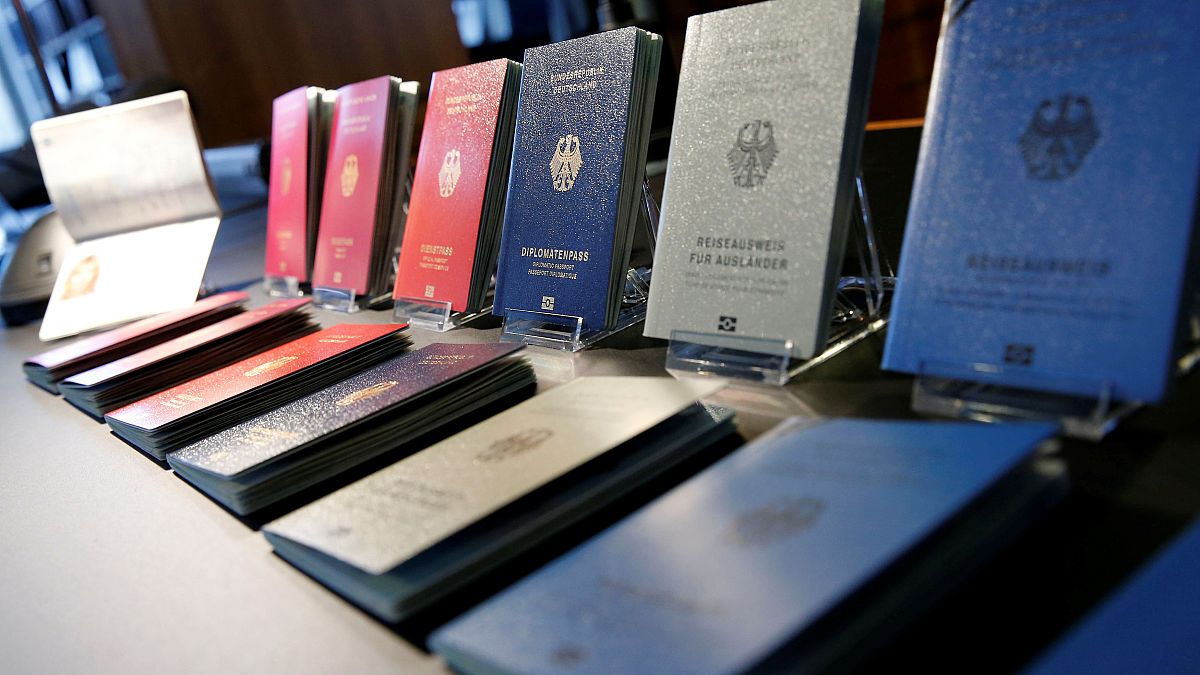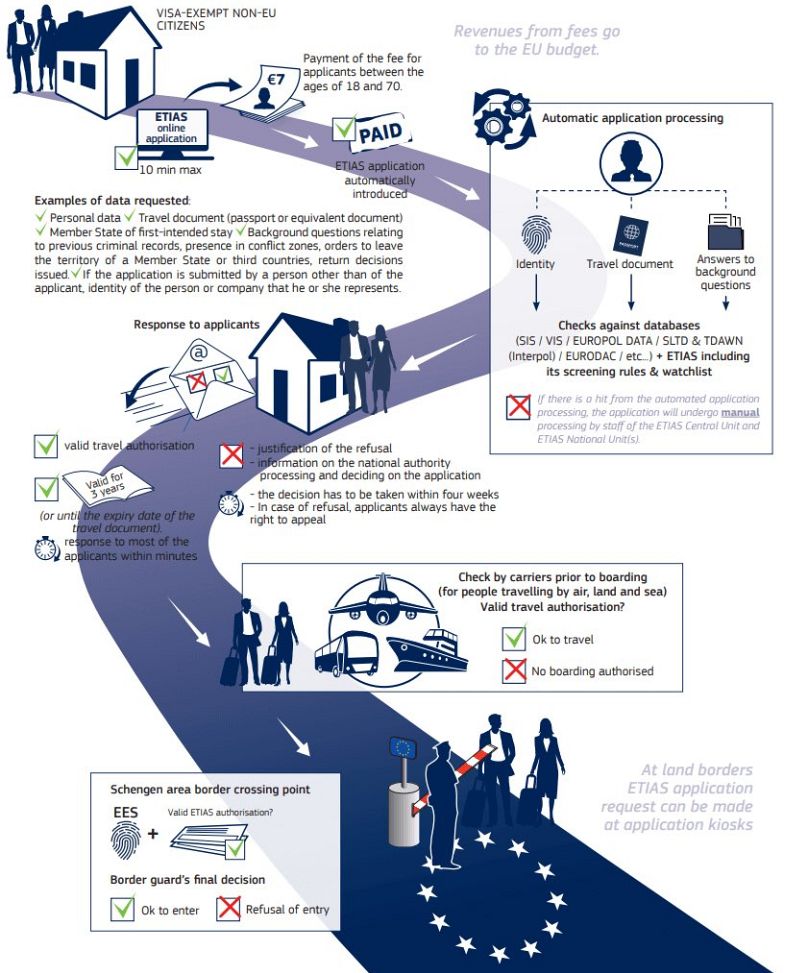The European Travel Information and Authorization System (ETIAS) is a visa waiver pre-screening program for all travelers under the EU visa-free program, that want to enter any of the EU countries. Its main purpose is the protection and strengthening of the EU external borders.
Brussels is introducing a new system that aims to tighten security on travellers entering the EU's free movement Schengen zone.
The area — which consists of 26 European countries — allows people to move across national borders without being stopped.
But terrorist attacks in Paris, Berlin and Brussels highlighted a need to tighten security at the EU's external border and within Schengen.
What's happening?
Brussels is targeting people who do not currently need a visa to enter one of the countries that make up Schengen.
Schengen countries are Austria, Hungary, Norway, Belgium, Iceland, Poland, Czech Republic, Italy, Portugal, Denmark, Latvia, Slovakia, Estonia, Liechtenstein, Slovenia, Finland, Lithuania, Spain, France, Luxembourg, Sweden, Germany, Malta, Switzerland, Greece and Netherlands.
The idea is that those already subject to a visa will have their security credentials scrutinised during that process.
But those nationals who do not need such documentation are potential security threats, hence the new system.
The scheme — called the European Travel Information and Authorization System (ETIAS) — will come into force by early 2021.
How does it work?
Travellers will need to fill out an online application form that covers a range of biometric-, travel- and security-related questions.
The application is expected to take about 10 minutes to fill out and the information will be checked against both international and European databases to identify potential terrorist and criminal threats.
The ETIAS online application will be electronically processed within 96 hours and delivered to the traveller via email.
A fee of €7 is required upon applying and the validity of the travel authorisation will be three years, or until the expiry date of the person's travel document. ETIAS can be used for stays of up to 90 days in a 180-day period.
Although the travel authorisation is valid for three years, it may be revoked should the conditions for issuing the travel authorisation no longer apply.
Why is the new system not considered a visa?
ETIAS falls into the travel authorisation type known as a ‘visa waiver’ and is not considered an official visa.
A visa-waiver enables eligible travellers to obtain a digital authorisation to confirm identity and security credentials.
Other countries running similar visa-waiver style authorisations are Canada, the United States and Australia.
The cost for developing ETIAS is estimated at €212.1 million and the average annual operations cost at €85 million.
ETIAS will be financially self-sustaining, as the annual operations costs will be covered by the fee revenue, according to the European Commission.
What countries will fall under ETIAS?
ETIAS travellers who will need this new visa-waiver will include nationals from over 60 countries.
The United States, Canada, Australia and New Zealand that do not require a Schengen visa will likely require an ETIAS to visit Europe beginning in early 2021.
European countries on the list include Serbia, Ukraine, Albania, Bosnia and Herzegovina, Republic of North Macedonia, and Moldova.
Will British citizens be affected?
As it currently stands, ETIAS will likely be required for British Citizens, as well as for British nationals living overseas, starting at the end of the transition period in 2020.
The EU Commission has confirmed the high likelihood of the ETIAS requirement for British Citizens in both "deal" or "no deal" scenarios.
A UK government spokesperson told Euronews the UK also intends to introduce an electronic travel authorisation scheme as part of the UK's future immigration system.
"It is our intention to require EU citizens to obtain an ETA in future, but we plan to discuss this further with the EU in the next phase of negotiations. UK nationals that have already gained residence permits under the Withdrawal Agreement will not be required to have an ETIAS when re-entering the Schengen area," the spokesperson said.

